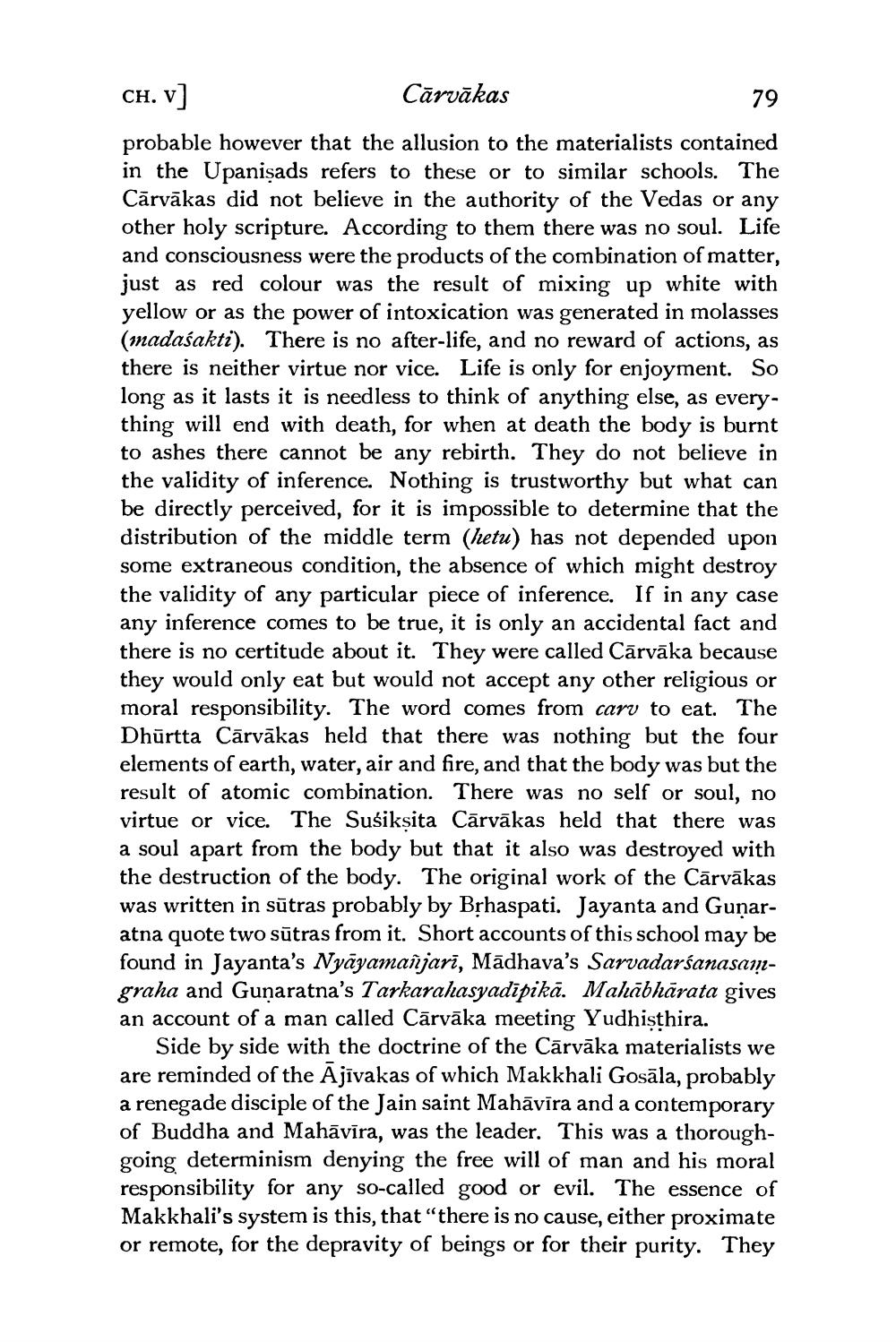________________
CH. V]
Cārvākas
probable however that the allusion to the materialists contained in the Upanisads refers to these or to similar schools. The Cārvākas did not believe in the authority of the Vedas or any other holy scripture. According to them there was no soul. Life and consciousness were the products of the combination of matter, just as red colour was the result of mixing up white with yellow or as the power of intoxication was generated in molasses (madaśakti). There is no after-life, and no reward of actions, as there is neither virtue nor vice. Life is only for enjoyment. So long as it lasts it is needless to think of anything else, as everything will end with death, for when at death the body is burnt to ashes there cannot be any rebirth. They do not believe in the validity of inference. Nothing is trustworthy but what can be directly perceived, for it is impossible to determine that the distribution of the middle term (hetu) has not depended upon some extraneous condition, the absence of which might destroy the validity of any particular piece of inference. If in any case any inference comes to be true, it is only an accidental fact and there is no certitude about it. They were called Cārvāka because they would only eat but would not accept any other religious or moral responsibility. The word comes from carv to eat. The Dhūrtta Cārvākas held that there was nothing but the four elements of earth, water, air and fire, and that the body was but the result of atomic combination. There was no self or soul, no virtue or vice. The Suśikṣita Cārvākas held that there was a soul apart from the body but that it also was destroyed with the destruction of the body. The original work of the Cārvākas was written in sutras probably by Bṛhaspati. Jayanta and Gunaratna quote two sūtras from it. Short accounts of this school may be found in Jayanta's Nyayamañjarī, Madhava's Sarvadarśanasamgraha and Gunaratna's Tarkarahasyadipika. Mahabharata gives an account of a man called Cārvāka meeting Yudhisthira.
79
Side by side with the doctrine of the Cārvāka materialists we are reminded of the Ajivakas of which Makkhali Gosāla, probably a renegade disciple of the Jain saint Mahāvīra and a contemporary of Buddha and Mahāvīra, was the leader. This was a thoroughgoing determinism denying the free will of man and his moral responsibility for any so-called good or evil. The essence of Makkhali's system is this, that "there is no cause, either proximate or remote, for the depravity of beings or for their purity. They




